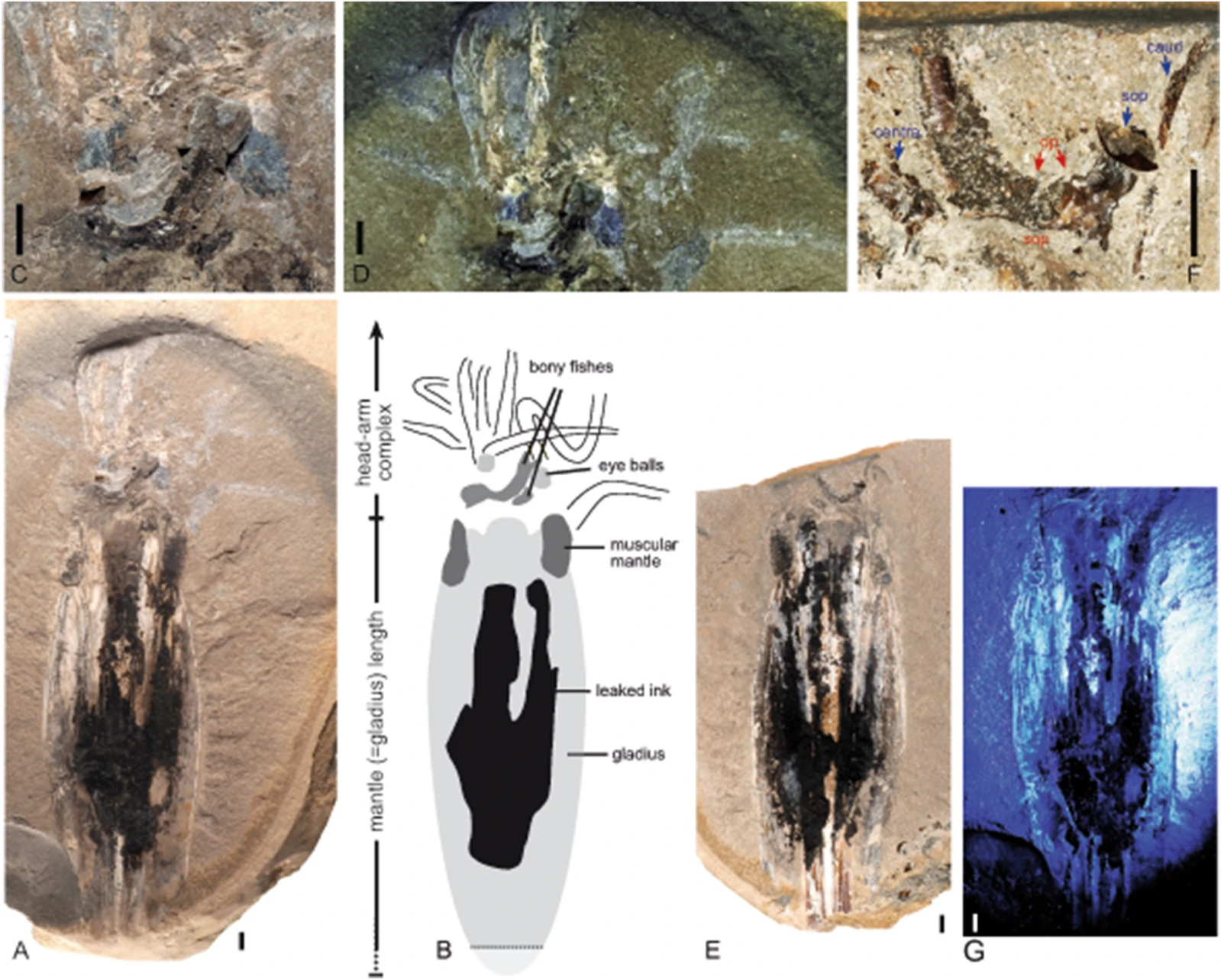A “vampire squid” fossil discovered in Luxembourg
Follow us on Google News (click on ☆)

Vampire squids, or vampyromorphs, are cephalopods that are closer to octopuses than squids, despite their appearance. Known for their bioluminescent organs and long retractable filaments, vampyromorphs stand out distinctly from other members of their family. To date, several species of vampyromorphs have been discovered, both existing and extinct, thereby enriching our understanding of these predators.
The detailed analysis of this fossil, discovered in 2022 and now named Simoniteuthis michaelyi, reveals an exceptionally well-preserved condition. Measuring about 15 inches (38 centimeters) long, this complete specimen was found in the midst of a meal, grasping two small fish with its tentacles, a scene rarely observed in the fossil record. This discovery is hailed as exceptional by researchers, not only for the quality of its preservation but also for the soft tissue structures, such as eyes and muscle tissues, that are observable in detail.
Previous research indicates that this vampyromorph resided in the maritime zones surrounding an island, located on what is today the territory of Europe. The particular circumstances surrounding its death, notably the lack of oxygen in the water, would have led to its asphyxiation. This same deficiency in oxygen would have also deterred other marine species from consuming the squid's remains, thus contributing to the perfect preservation of its body within the sediments.
This discovery offers a precious window into the marine life of the Lower Jurassic and highlights the importance of environmental conditions in the preservation of fossils. It also reminds us of the continuity of life on Earth and nature's ability to preserve its oldest secrets so that we may discover them millions of years later.
The term “vampire” associated with vampyromorphs stems from their unique physical characteristics that evoke the imagery of the mythical vampire. However, contrary to their eerie nickname, vampire squids primarily feed on detritus and plankton, not blood.